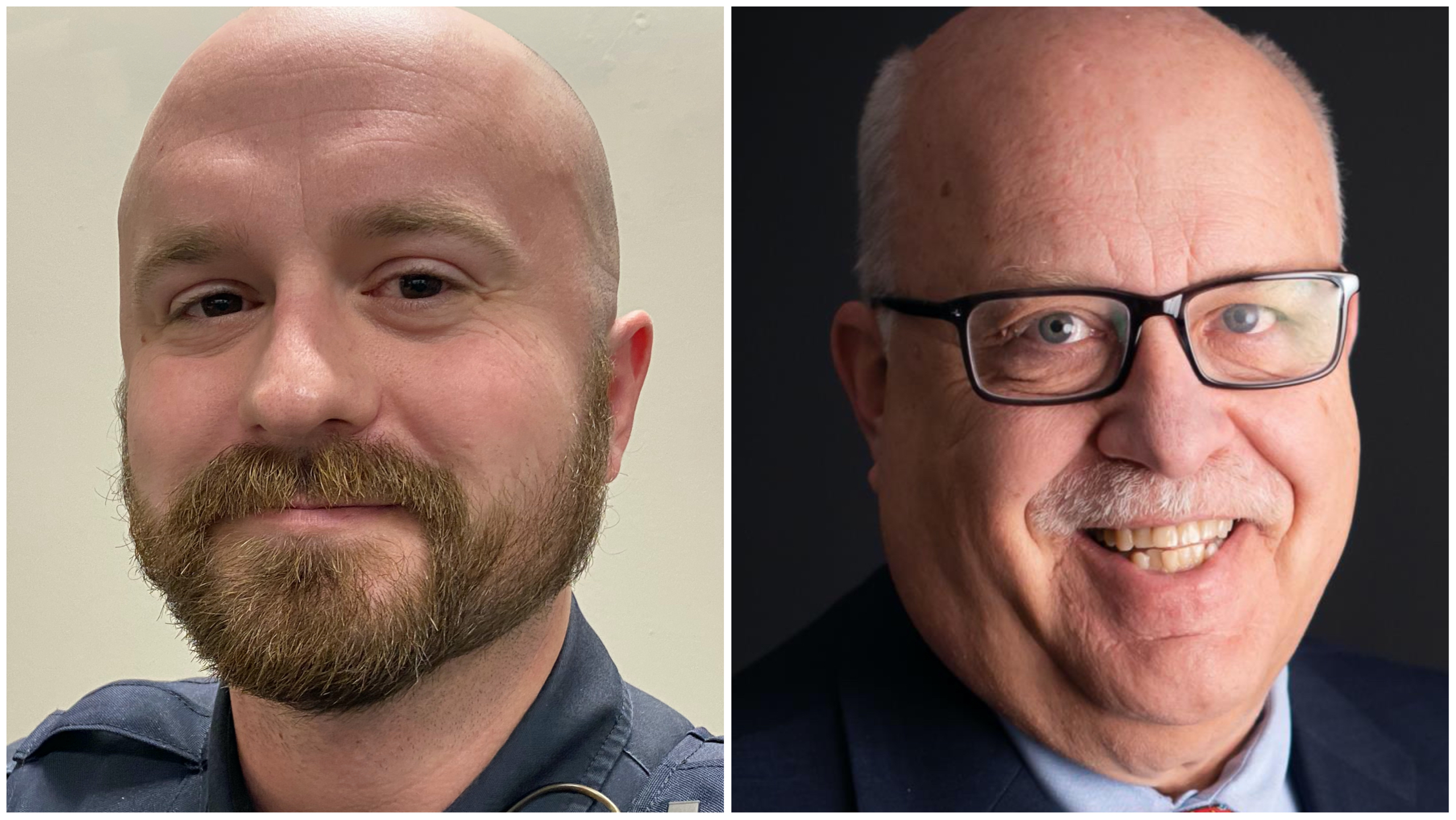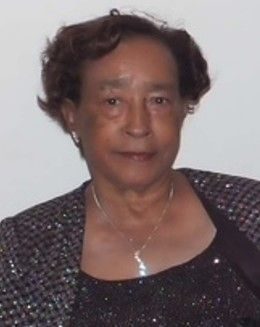Arbitrator ruling gives police union 13.25 percent wage increase over four-year contract

QUINCY — An arbitrator issued a 16-page ruling Monday that agreed with the Police Benevolent and Protective Association Labor Unit 12’s proposal for wage increases and length of contract for officers with the Quincy Police Department, bringing an end to the collective bargaining dispute that has lasted for more than two years.
The police union will receive a wage increase of 2.75 percent for the 2021 contract year, and wage increases of 3.5 percent for the 2022, 2023 and 2024 contract years. Each contract begins in May. The union wanted a four-year year contract, and the city wanted a three-year contract. The total wage increase over four years will be 13.25 percent.
“My first reaction was to call Nick Eddy and say, ‘Thanks for your hard work,’ ” said Robert Megee, president of the PB&PA Labor Unit 12. “Nick was union president when we started negotiating this, and then I was union president. I called Nick and thanked him, and we kind of laughed on the phone together. This whole time we’ve been saying that we’re not doing anything crazy. We’re doing what we think is right for our members.
“I was happy to see the arbitrator was definitely doing his job and paying attention.”
Near the end of Monday’s Quincy City Council meeting, Mayor Mike Troup told the aldermen he had forwarded them the ruling via e-mail Monday afternoon and it would be on next week’s council agenda.
“We’ll have more comments after reviewing the documents with our attorney,” Troup said.
The last collective bargaining agreements between the union and city expired April 30, 2021. Bargaining didn’t begin until Troup was seated as the mayor in May 2021. Shane Voyles of Springfield represented the police union during arbitration. Roy Carlson from Chicago-based Ancel Glink represented the city.
The city’s final contract offer included retroactive wage increases of 2.75 percent for the 2021 and 2022 contract years, and wage increases of 3 percent for the 2023 contract year.
“The city has expressed an interest in maintaining consistency within city bargaining units for both wage increases and contract durations,” arbitrator Michael Wojcik from Sugar Grove wrote. “While the arbitrator understands the positive benefits that this consistency would provide to the city, the arbitrator is unwilling to accept the city’s position because it restricts the union’s ability to negotiate on behalf of the needs and expectations of its membership, thereby limiting the union to only the gains obtained by other city bargaining units.”
Wojcik also said the additional contract year proposed by the union will provide “breathing room” before each side enters another period of contract negotiations.
“If the arbitrator were to accept the city’s three-year wage proposal, the arbitrator would be sending the parties back to the negotiating table in a relatively short time,” he wrote.
Wojcik also addressed the issue regarding whether a tentative agreement had been previously reached by both sides about wages.
The city filed a complaint with the Illinois Labor Relations Board claiming both sides had reached a tentative three-year agreement in July 2021 that called for:
- Wage increases of 2.75 percent, 2.75 percent and 3 percent for each year;
- An additional step on the wage schedule representing 1 percent higher for patrol officers only after 25 years of employment;
- Allowing unit members the opportunity to contribute the value of their sick leave at retirement into a health savings account or health reimbursement account.
Wojcik agreed with the union about the lack of a tentative agreement.
“The union suggests that, while at some point in the negotiations, the union had agreed to the city’s wage proposal, (but) the union later rejected the wage proposal when the city decided to change employee health insurance benefits,” Wojcik wrote. “The city’s decision to make changes to employees’ health insurance benefits resulted in a disruption and delay of contract negotiations. This delay prevented the parties in reaching a final agreement on wages and results in the union’s revised final offer wage proposal.”
Megee said the city was portraying a position about the tentative agreements that was “a flat-out lie.”
“I will tell you that Jeff Mays (the city’s director of administrative services) a flat-out liar,” he said. “He lied under oath during arbitration, saying we had tentative agreements. When you read the arbitrator’s final decision on all this, you will see that he agrees that we did not have tentative agreements with the city.
“It’s a relief. That’s what it is. You try to do things the right way. You try to negotiate with people. You try to have conversations the correct way. You see people who are either elected officials or appointed officials, and you see them lying. You see them doing things that are contrary to the best interest of the city, to the taxpayer and to the employees.”
As part of the “tentative agreement” the city thought it had reached in July 2021, Troup said he learned the police department had previously engaged in allowing officers and supervisors in specialty positions, such as student resource officers and detectives, to be recorded as reporting to work on holidays on which they were scheduled work — even though they were not reporting to nor performing any work on holidays.
“This issue with a holiday pay is not something that’s offered all employees,” Troup said in a September 2022 interview with Muddy River News. “It’s something the police administration has been doing, and I don’t believe it’s been handled correctly for quite some time.”
Eddy said in a September 2022 interview the holiday pay practice has been in place for several years. He also said neither side formally documented nor exchanged a tentative agreement that included agreement on wages.
The city made a proposal on Oct. 14, 2021, that included new language regarding holiday time. However, the union rejected it days later and did not counteroffer. The city said it subsequently withdrew its holiday time proposal and eventually suggested the language in the CBA remain status quo.
“There is no evidence presented to suggest the existing language has caused conflict between the parties in the past,” Wojcik wrote.
“When we went to arbitration, the city sort of balked (on the holiday pay issue),” Megee said. “They said they just wanted to keep things how it currently works right now. We tried to strengthen the language in the contract and wanted to take an additive measure of saying the city can’t change it. Because (the city wasn’t) asking to change anything, we weren’t able to present any evidence of saying why their change was a bad idea.
“The status quo is perfectly fine for us. We just didn’t want changes to be made to it.”
The PB&PA Unit 12 filed a grievance in January against the city of Quincy for failing to provide health insurance or vision coverage to all police officers in violation of its contract with the union. Wojcik wrote that evidence showed the city violated the collective bargaining agreement by not adhering to its responsibility to provide the required 60-day notice before making changes to health insurance benefits.
However, he didn’t agree with the union’s request to change the language in the collective bargaining agreement to say that “any change to the health insurance benefit levels must be bargained with the union to fullest extent required under … the Illinois Public Relations Act.”
“There were minor issues during the implementation period, but there is no evidence to suggest any employees experienced major issues or problems which were not resolved early on during the transition period,” he wrote. “There is no evidence to indicate the new health insurance benefits have diminished.”
“We were just adding language that strengthened the position of any change to health insurance benefits must be bargained with the union,” Megee said. “We just wanted stronger language, but the arbitrator said it really wasn’t necessary.”
Wojcik ruled that the health insurance language in the CBA remain unchanged, while adding that an additional proposal providing employees (upon retirement or termination) with a new opportunity to deposit a portion of their accrued sick time into a health savings account.
Troup sent an email to aldermen Monday to inform them of the arbitrator’s ruling. Muddy River News obtained a copy of the email Monday night.
“I received a call from Roy at Ansel that the arbitrator made his ruling,” Troup wrote. “Police union compensation plan awarded, and the city was awarded the health insurance and no additional paid time off above holiday and vacation for police. I’m still waiting to receive a copy of the actual ruling. However, since both the attorneys for the city and the police received this at the same time, I wanted to provide you with an update before the media does. As soon as I receive the ruling, I will update you further.”
Wojcik wrote that the uncertainty of the economy and inflation were the most significant factors affecting his decision on the wage increases. He used statistics from the Survey of Professional Forecasters and the Consumer Price Index to make his determination.
Wojcik ruled the termination date of the new collective bargaining agreement is April 30, 2025.
In light of Wojcik’s rulings and last week’s City Council’s decision that relaxed and extended residency requirements for QPD officers, Megee was all smiles Monday.
“I think the City Council has had enough of certain practices that have been going on in the city,” Megee said. “The City Council’s completely right to be fed up with certain things that have been happening, and they were completely justified in taking bargaining into their own hands when it came to this residency agreement.
“Ultimately, it’s great for us and it’s great for the city because we didn’t go crazy on our wage offers.”
Publisher J. Robert Gough contributed to this story.
Miss Clipping Out Stories to Save for Later?
Click the Purchase Story button below to order a print of this story. We will print it for you on matte photo paper to keep forever.

